Your iPhone’s battery health directly impacts its performance and longevity. With the average person checking their phone 96 times a day, proper charging habits are crucial for maintaining battery life. This guide explores essential iPhone charging habits tips that can significantly extend your battery’s lifespan and keep your device running efficiently for years to come.
Understanding iPhone Batteries: The Foundation of Good Charging Habits
Before diving into specific iPhone charging habits tips, it’s important to understand how your device’s battery works. iPhones use lithium-ion batteries, which have different characteristics than older battery technologies.
How Lithium-Ion Batteries Work
Lithium-ion batteries store and release energy through the movement of lithium ions between positive and negative electrodes. According to Battery University, these batteries don’t have the “memory effect” that plagued older battery types, but they do have their own set of best practices for optimal performance.
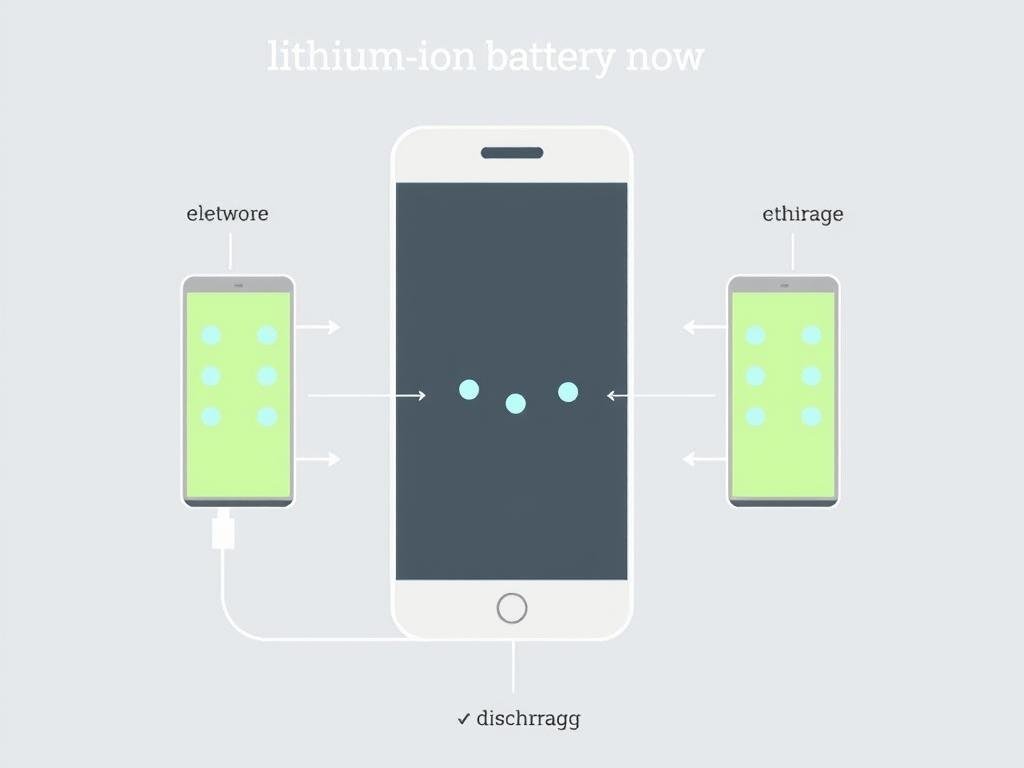
Battery Cycles and Lifespan
Apple designs iPhone batteries to retain up to 80% of their original capacity after 500 complete charge cycles. A charge cycle occurs when you use 100% of your battery’s capacity, though not necessarily all at once. For example, using 50% of your battery two days in a row counts as one complete cycle.
Did you know? According to Apple, an iPhone battery is designed to retain up to 80% of its original capacity at 500 complete charge cycles when operating under normal conditions.
5 Essential iPhone Charging Habits Tips
Implementing these key iPhone charging habits tips can significantly improve your battery’s health and longevity.
1. Maintain Battery Levels Between 20% and 80%
One of the most effective iPhone battery tips is to keep your charge level between 20% and 80%. Lithium-ion batteries experience stress when completely empty or fully charged.
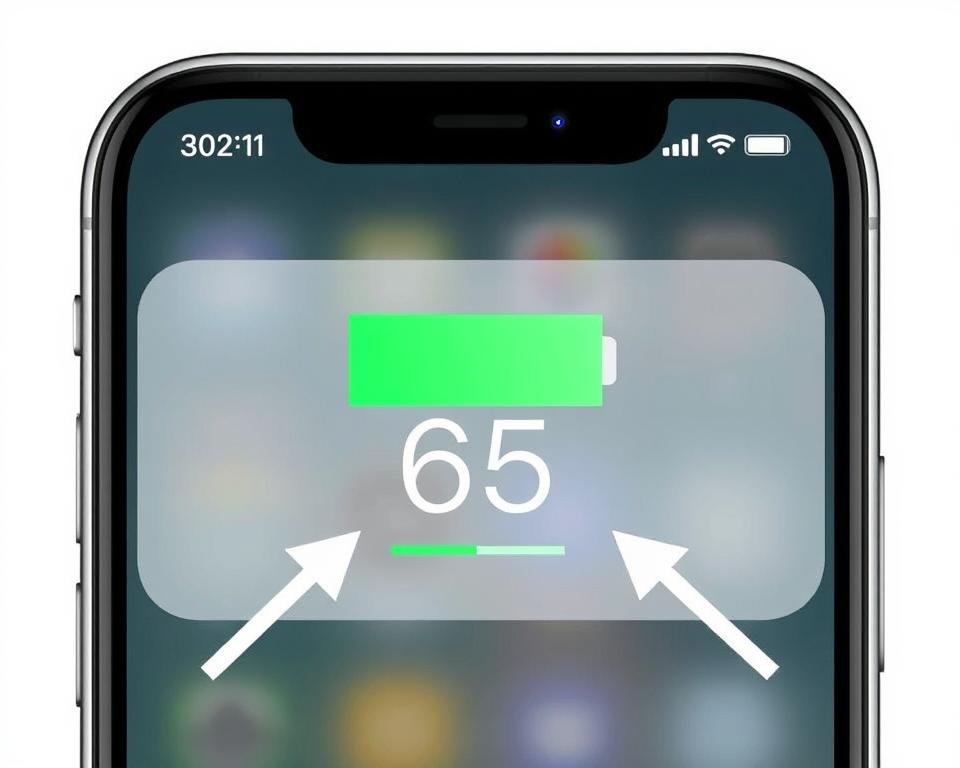
Research from Apple’s battery information page confirms that partial charges are better for your battery than full cycles. Try to plug in your iPhone before it drops below 20%, and consider unplugging it before it reaches 100%.
2. Avoid Extreme Temperatures
Heat is a major enemy of battery health. Apple recommends using your iPhone in environments between 0° and 35°C (32° to 95°F). Charging your phone when it’s hot can cause significant damage to the battery.
Warning: Remove your iPhone case while charging if you notice excessive heat buildup. Heat is one of the primary factors that accelerate battery degradation.
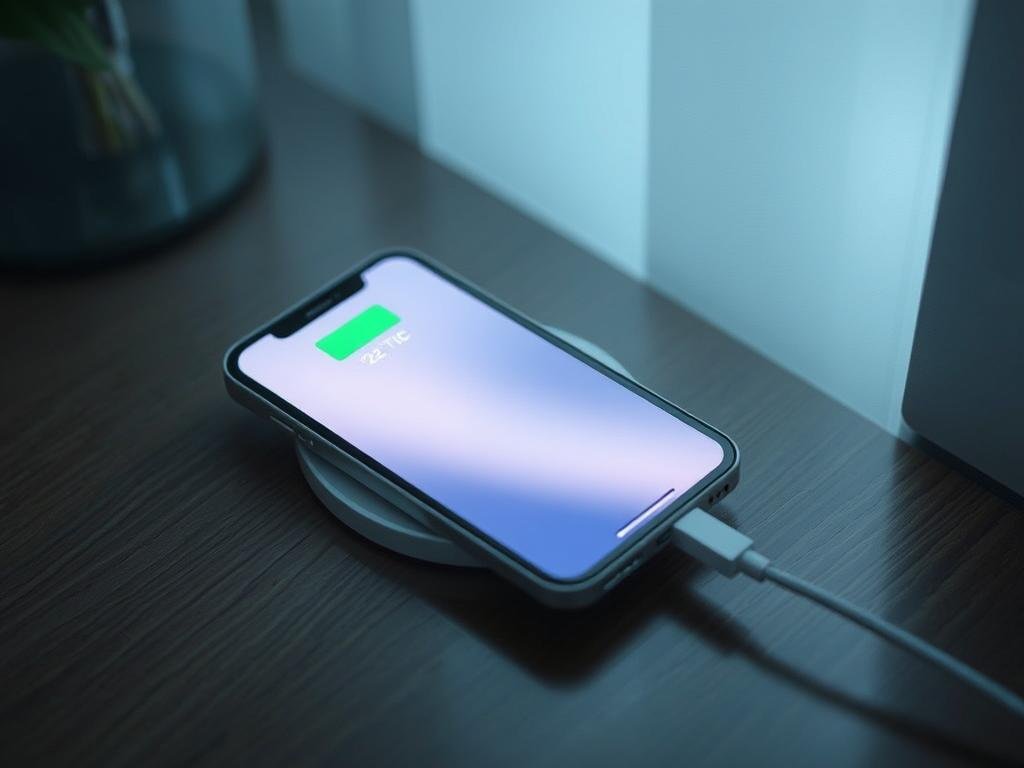
3. Use Official or Certified Charging Accessories
While third-party chargers can be convenient and less expensive, using Apple-certified accessories ensures your iPhone receives the correct voltage and current. Look for the “Made for iPhone” (MFi) certification on third-party products.
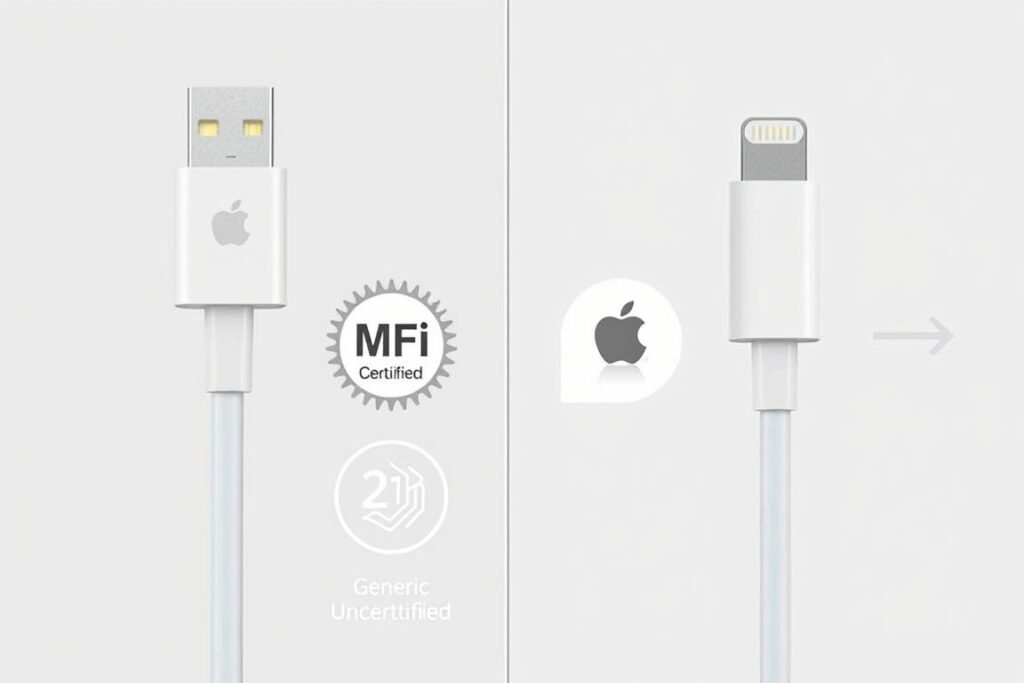
4. Enable Optimized Battery Charging
Since iOS 13, iPhones include a feature called Optimized Battery Charging, which learns your daily charging routine and reduces battery aging by limiting the time your iPhone spends fully charged.
To enable this feature:
- Open Settings
- Tap Battery
- Select Battery Health & Charging
- Toggle on Optimized Battery Charging
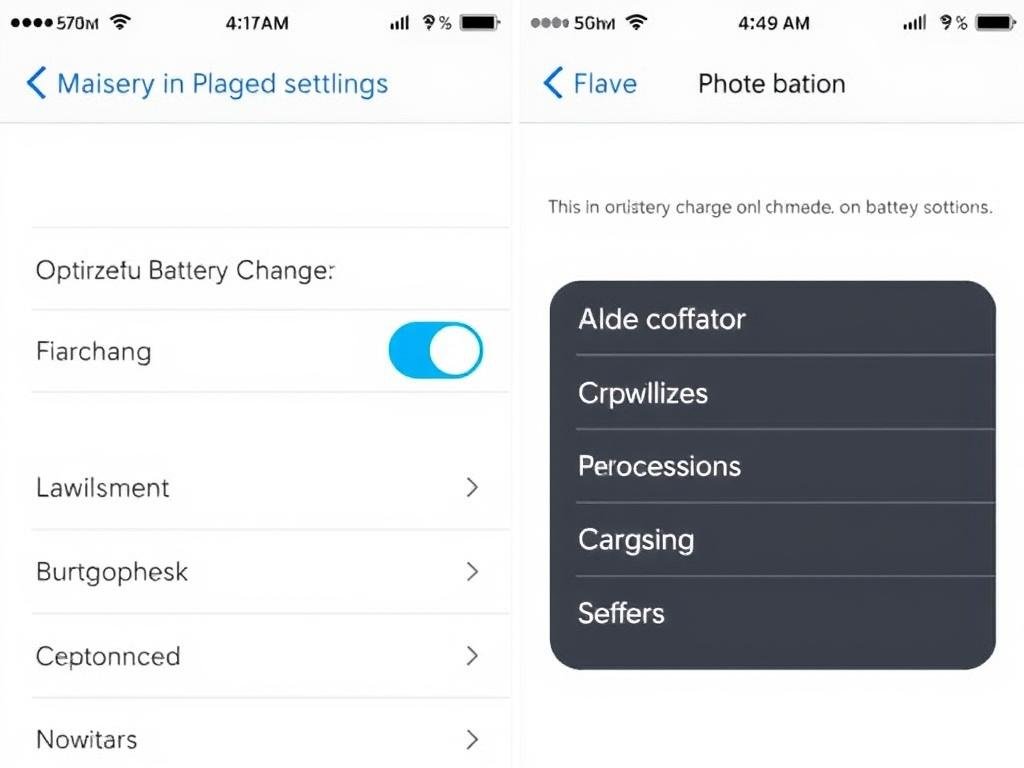
5. Charge with the Right Power Delivery Method
Different charging methods affect your battery in various ways:
Wired Charging
Standard charging is gentler on your battery. For overnight charging, using a standard 5W charger may be better for long-term battery health than fast charging.
Fast Charging
While convenient, fast charging generates more heat and can stress your battery if used exclusively. Reserve fast charging for when you’re in a hurry.
Wireless Charging
Convenient but generates more heat than wired charging. Remove your case if using wireless charging to prevent heat buildup.
Computer USB Ports
Charging via computer USB ports provides lower power output, resulting in slower but potentially gentler charging.
Common iPhone Charging Mistakes to Avoid
Many iPhone users unknowingly damage their batteries through improper charging habits. Here are the most common mistakes to avoid:
Charging Mistakes to Avoid
- Letting battery completely drain before charging
- Keeping iPhone plugged in at 100% for extended periods
- Using low-quality, uncertified charging accessories
- Charging in extremely hot environments
- Using your iPhone intensively while fast-charging
- Exposing your iPhone to direct sunlight while charging
Recommended Charging Practices
- Charging when battery level falls to 20-30%
- Unplugging once battery reaches 80-90%
- Using Apple-certified charging accessories
- Charging at room temperature
- Removing case if phone gets warm while charging
- Enabling Optimized Battery Charging in settings
Debunking Common Battery Myths
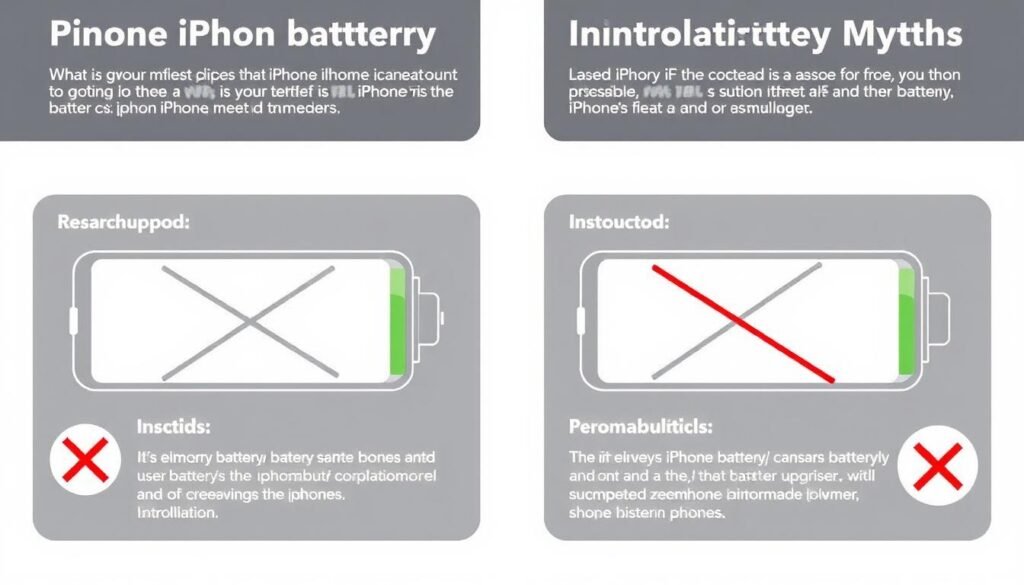
Myth: You should fully discharge your iPhone before recharging
This advice was relevant for older nickel-cadmium batteries but is harmful for lithium-ion batteries in iPhones. Complete discharges stress the battery and reduce its lifespan.
Myth: Charging overnight damages your battery
Modern iPhones have protection circuits that stop charging when the battery is full. However, keeping your phone at 100% for extended periods can still cause stress. Using Optimized Battery Charging helps mitigate this issue.
Myth: Using your iPhone while charging is dangerous
Using your iPhone while charging is safe but can generate additional heat, which isn’t ideal for battery health. Heavy usage (like gaming) while fast-charging should be avoided when possible.
Optimizing iOS Settings for Better Battery Preservation
Beyond charging habits, several iOS settings can help extend your iPhone’s battery life and health.
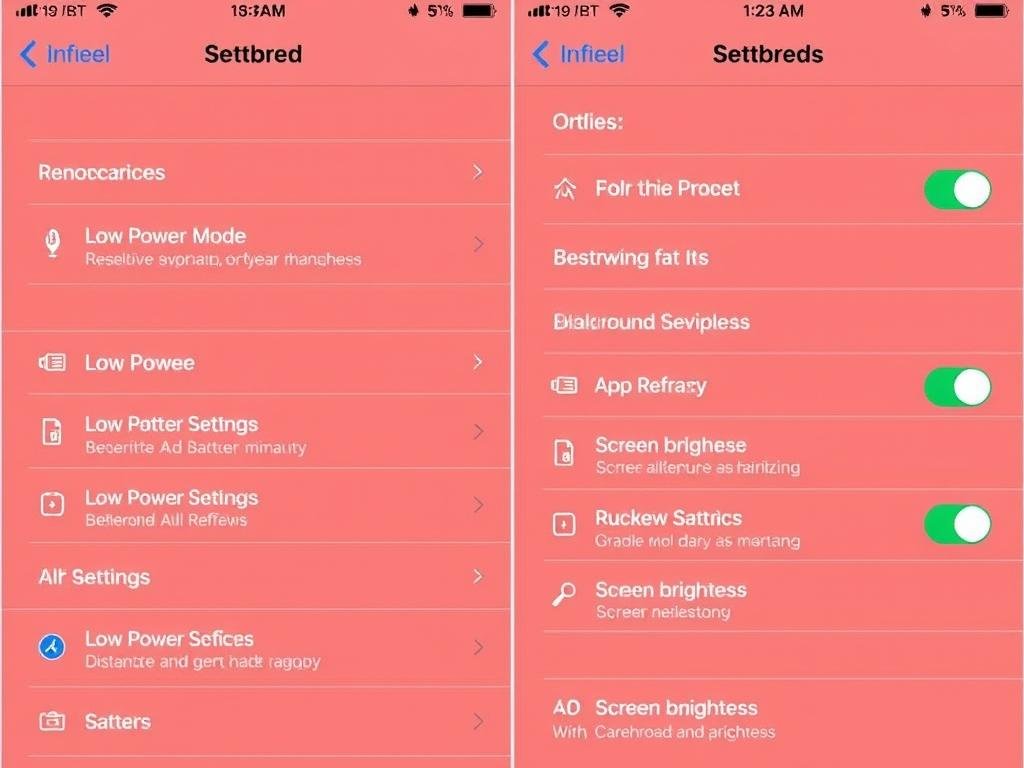
Essential Battery Settings to Adjust
| Setting | Location | Recommendation | Battery Impact |
| Background App Refresh | Settings > General > Background App Refresh | Disable for non-essential apps | High |
| Location Services | Settings > Privacy > Location Services | Set to “While Using” for most apps | High |
| Screen Brightness | Settings > Display & Brightness | Enable Auto-Brightness, reduce manual brightness | High |
| Push Email | Settings > Mail > Accounts > Fetch New Data | Change from Push to Manual or Fetch | Medium |
| Auto-Lock | Settings > Display & Brightness > Auto-Lock | Set to 30 seconds or 1 minute | Medium |
| Low Power Mode | Settings > Battery | Enable when below 20% or during long periods of use | Very High |
Monitor Battery Health and Usage
iOS provides tools to monitor which apps consume the most battery power. Regularly check Settings > Battery to identify power-hungry apps and adjust your usage accordingly.
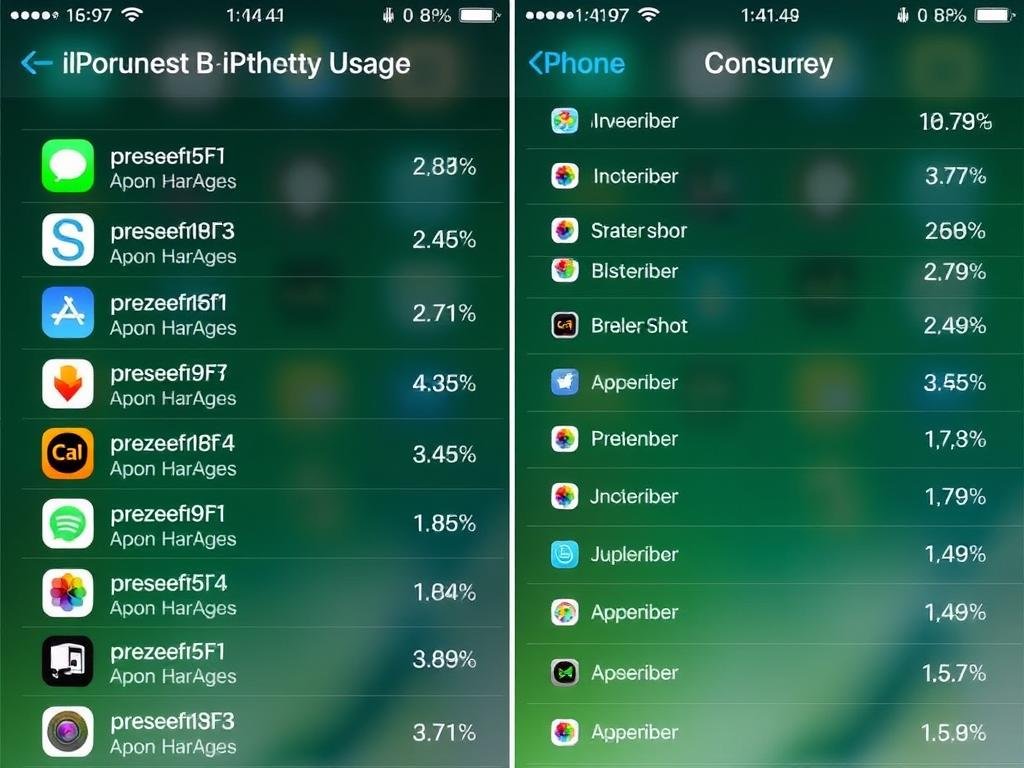
For a deeper understanding of your battery’s condition, check Settings > Battery > Battery Health & Charging, where you can view your battery’s maximum capacity percentage and peak performance capability.
Creating a Smart Charging Routine for Your iPhone
Implementing these iPhone charging habits tips into your daily routine can significantly extend your battery’s lifespan. Here’s a suggested daily charging schedule:
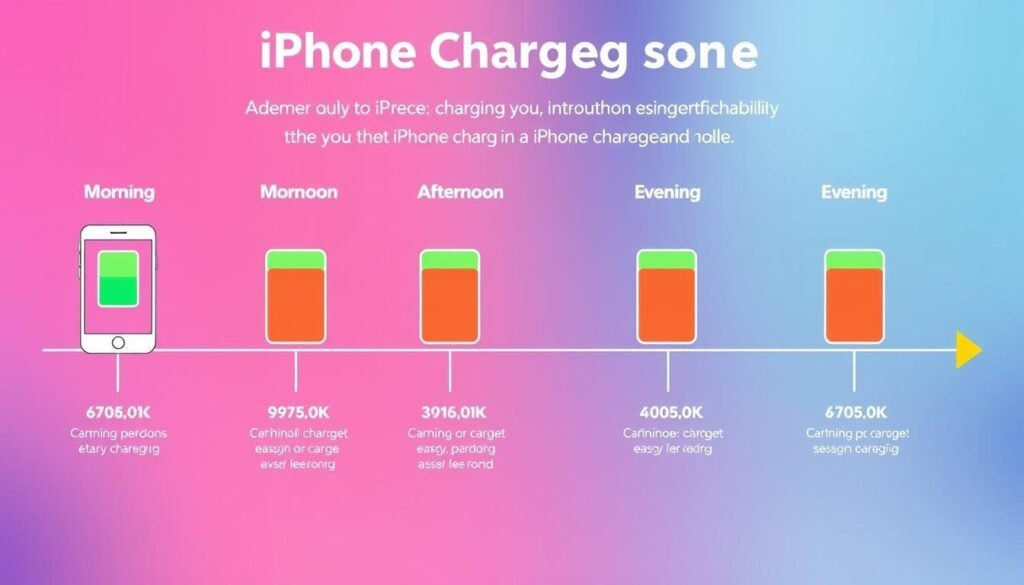
A recommended daily charging schedule to maximize battery health
Morning Routine
- If your battery is below 50%, charge it while getting ready for the day
- Unplug before reaching 100% if possible (80-90% is ideal)
- Adjust screen brightness based on your environment
During the Day
- Use short charging sessions when convenient (these are ideal for lithium-ion batteries)
- Enable Low Power Mode when battery falls below 20%
- Connect to Wi-Fi when available to reduce cellular data usage (which consumes more power)
Evening Routine
- Charge to around 80% before bedtime
- Enable Optimized Battery Charging for overnight charging
- Consider enabling Do Not Disturb or Sleep Mode to reduce background activity
“The key to lithium-ion battery longevity isn’t about full cycles but rather keeping the battery in its comfort zone between 20% and 80% as much as possible.”
When to Consider Battery Replacement
Even with the best iPhone charging habits, batteries eventually degrade. According to Apple’s battery service information, consider replacement when:
- Battery Health shows below 80% maximum capacity
- Your iPhone unexpectedly shuts down despite showing battery remaining
- Battery drains exceptionally quickly during normal use
- Your iPhone displays the “Service” message in Battery Health settings
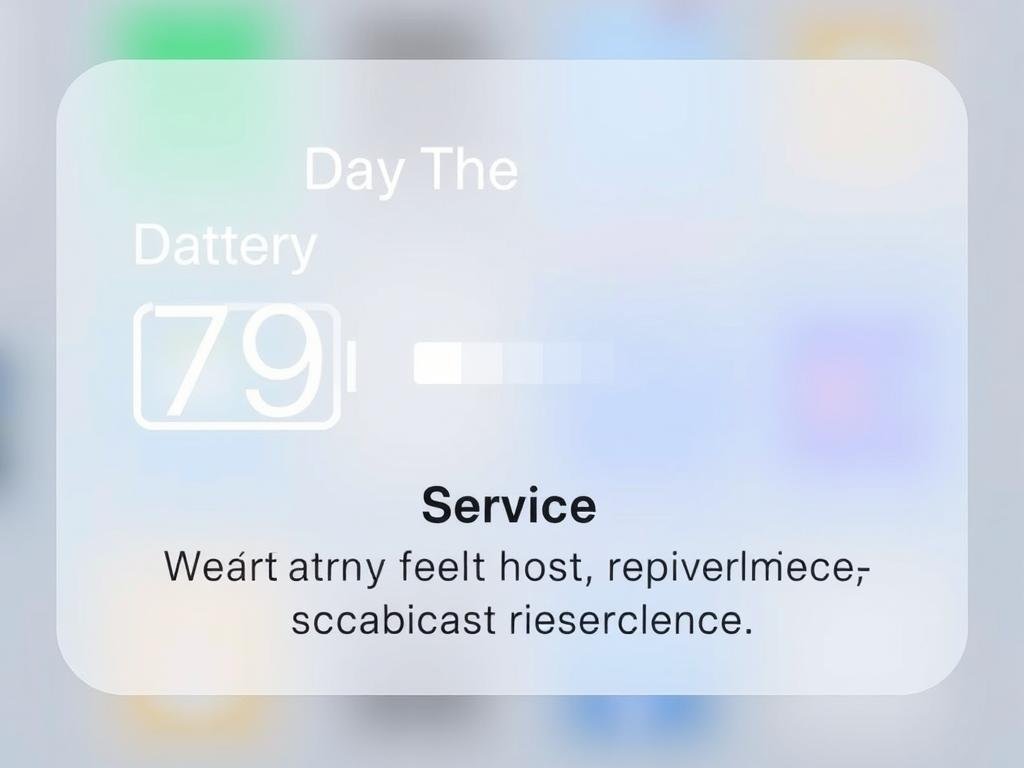
Conclusion: Implementing Better iPhone Charging Habits
Adopting proper iPhone charging habits tips can significantly extend your device’s battery life and overall longevity. Remember these key points:
- Keep your battery level between 20% and 80% when possible
- Avoid extreme temperatures, especially while charging
- Use Apple-certified charging accessories
- Enable Optimized Battery Charging in your settings
- Adjust iOS settings to reduce unnecessary battery drain
- Monitor your battery health regularly
By implementing these strategies, you’ll not only extend your iPhone’s battery life but also reduce the frequency of battery replacements, saving money and reducing electronic waste. Small changes to your charging habits can make a significant difference in your device’s performance and longevity.

For the most up-to-date information on iPhone batteries, visit Apple’s official battery information page.